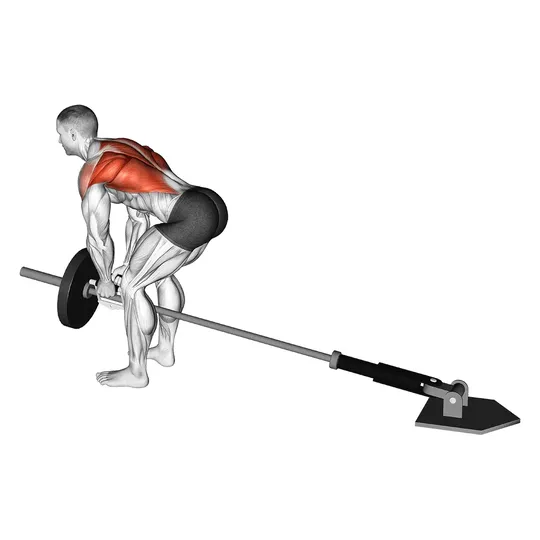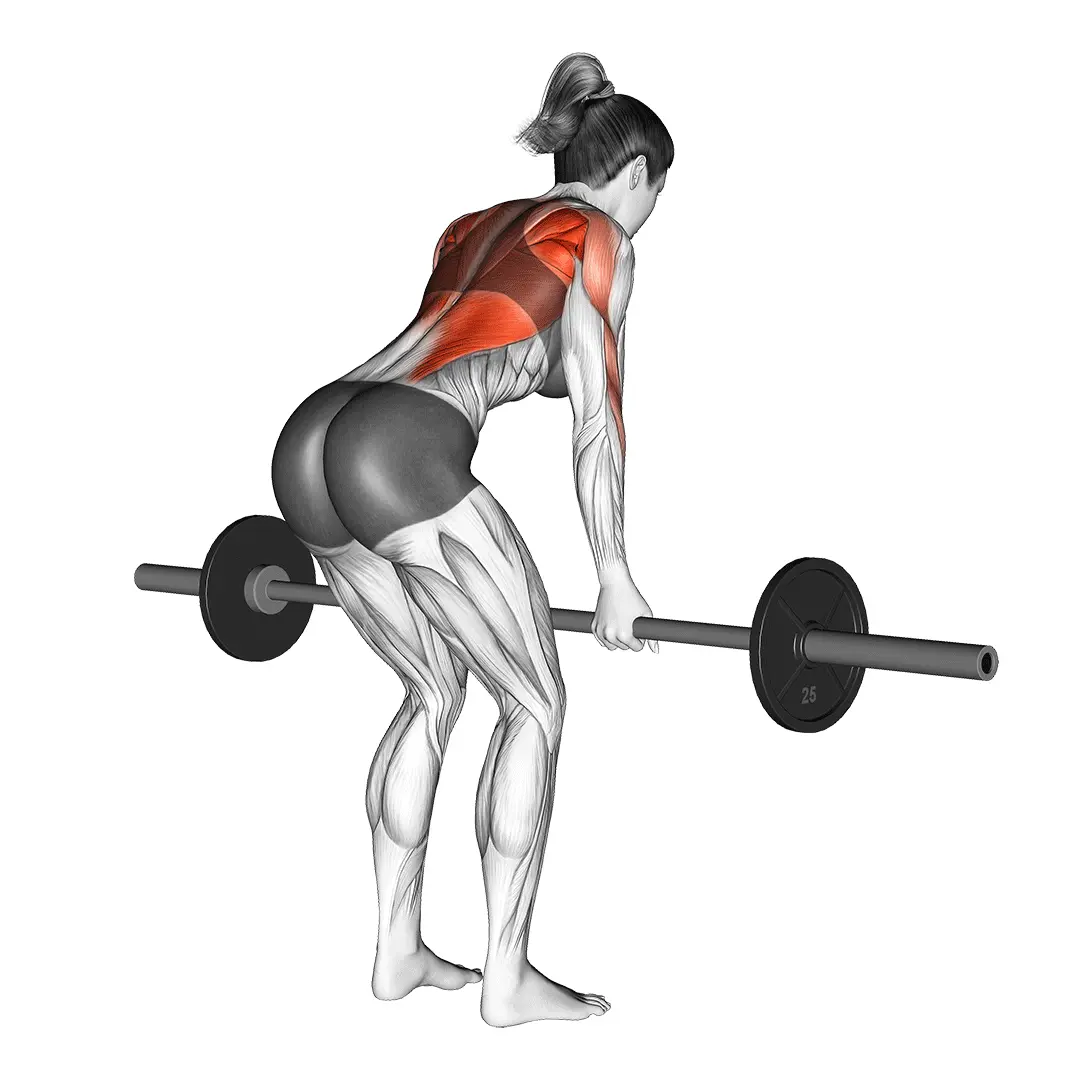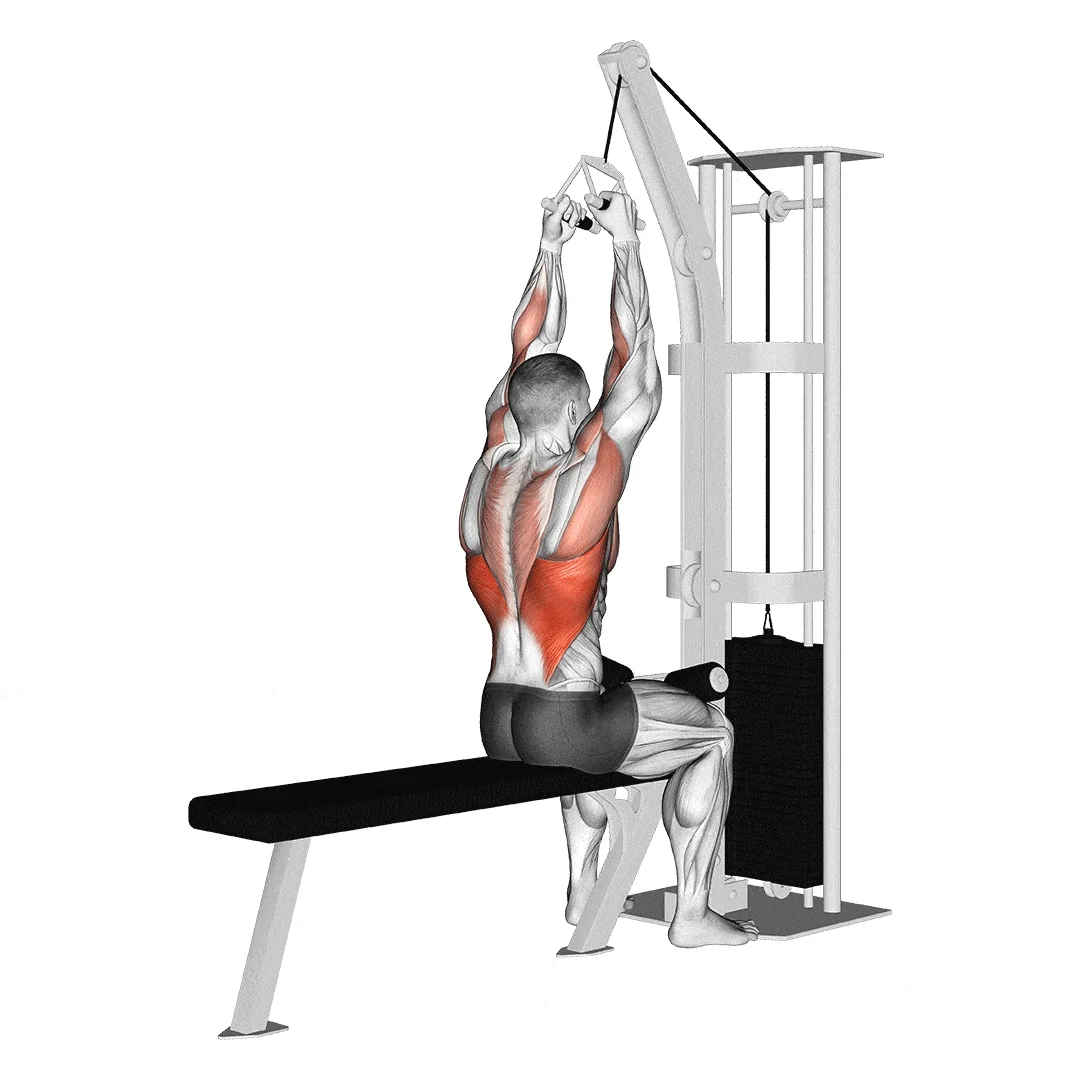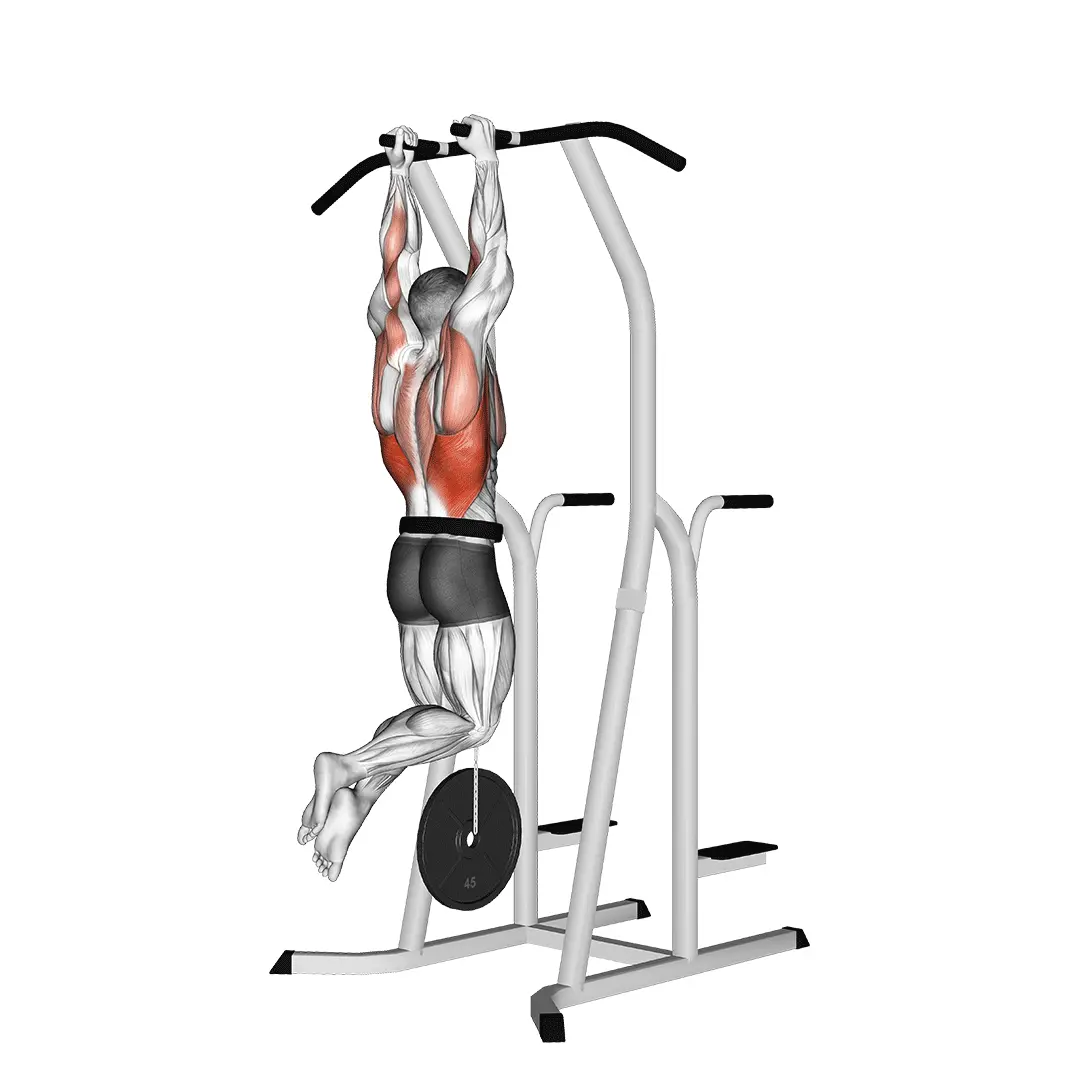Barbell T Bar Row

Latest Videos
No videos available.
Barbell T Bar Row Workouts
Similar exercises
Description of the Barbell T Bar Row
The Barbell T Bar Row is a powerful compound exercise targeting the upper and middle back muscles, primarily the latissimus dorsi, rhomboids, and trapezius, while also engaging the lower back, biceps, and rear deltoids. This rowing movement mimics real-world pulling actions, making it an essential addition to any strength training routine aimed at developing back strength and muscularity.
Muscles Involved
- Latissimus Dorsi
- Rhomboids
- Trapezius
- Rear Deltoids
- Biceps Brachii
- Lower Back (Erector Spinae)
Top Mistakes
- Using excessive weight, leading to compromised form.
- Overextending or rounding the lower back.
- Pulling with the arms rather than engaging the back muscles.
- Not maintaining a stable stance, causing oscillation during reps.
- Failing to control the weight on the way down, losing the engagement.
Execution Tips
To effectively perform the Barbell T Bar Row, follow these execution tips:
- Begin with your feet shoulder-width apart, knees slightly bent.
- Position your chest towards the floor, maintaining a flat back.
- Grab the handles or bar firmly, ensuring a natural grip.
- Engage your core and initiate the row by pulling your elbows straight back, keeping them close to the body.
- Focus on squeezing the shoulder blades together at the top of the movement.
- Lower the weight slowly and with control, maintaining the tension in your back muscles.
Workouts Incorporating Barbell T Bar Row
Incorporating the Barbell T Bar Row into your workouts can enhance your back development. Try integrating it into your routine as follows:
- On back training days: Pair it with pull-ups, seated rows, and deadlifts.
- As part of a push/pull/legs split: Use it on your pull day for optimal back engagement.
- In circuit training: Include it for a combination of strength and hypertrophy.
Conclusion
The Barbell T Bar Row is an unparalleled exercise for strengthening the back, improving posture, and enhancing overall upper body stability. By focusing on proper form, avoiding common mistakes, and integrating it into a well-rounded workout routine, you can maximize the benefits of this essential movement.




